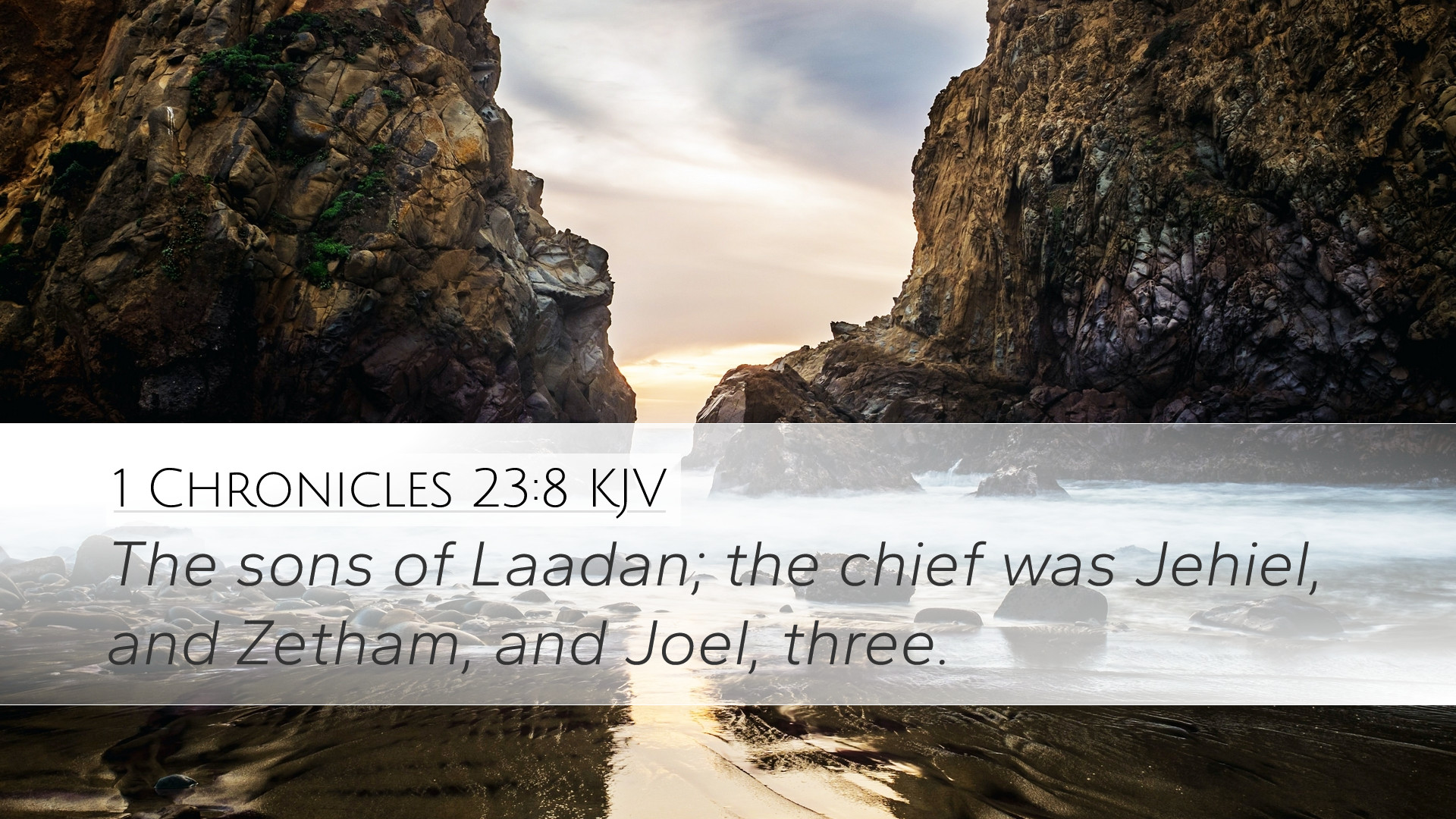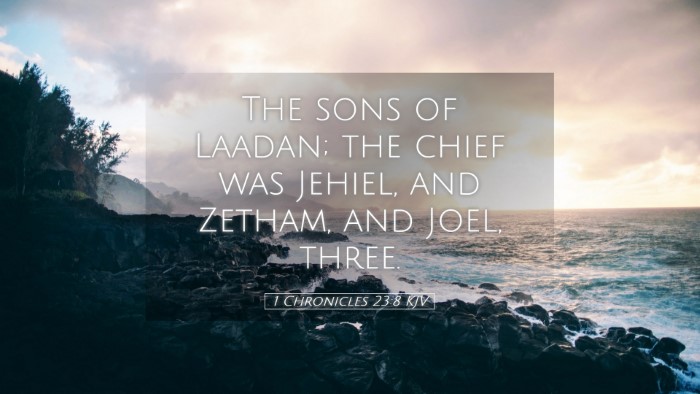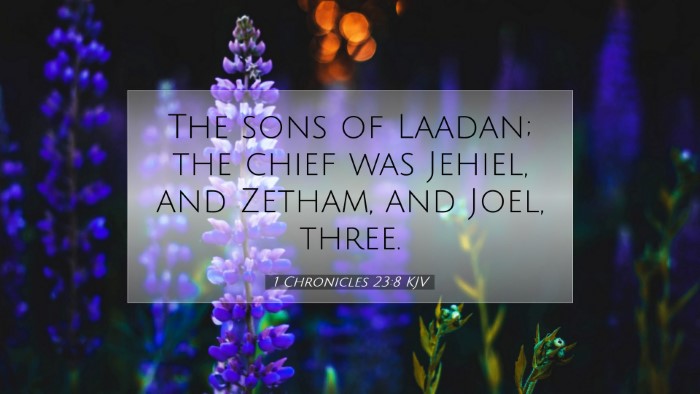Commentary on 1 Chronicles 23:8
1 Chronicles 23:8 states: "The sons of Amram: Aaron and Moses: and Aaron was separated, that he should sanctify the most holy things, he and his sons for ever, to burn incense before the LORD, to minister unto him, and to bless in his name for ever."
This verse serves as a pivotal point in the Chronicler’s account, emphasizing the distinct roles assigned to the descendants of Aaron and Moses in the service of the Temple and worship practices of Israel. Below, we explore various aspects of this verse, drawing insights from public domain commentaries, including those by Matthew Henry, Albert Barnes, and Adam Clarke.
Overview of the Role of Aaron and Moses
Historical Context: Aaron and Moses represent two of the most significant figures in Israel’s history. Moses, as the lawgiver, lays down the framework for Israelite worship and morality, while Aaron, appointed as the first high priest, establishes the priestly lineage that is crucial for temple worship.
Matthew Henry’s Insights: Henry highlights that Aaron was set apart not only for priestly duties but also to sanctify the holy things. His writings stress that such a sanctification serves to illustrate God’s holiness and the necessary separation required for those who serve in divine roles. The emphasis is on the "most holy things," which includes the priesthood, sacrifices, and the very presence of God in the tabernacle.
Importance of Separation and Sanctification
Albert Barnes on Separation: Barnes elaborates on the term "separated," underscoring that it denotes a special consecration to God’s service. The Levites and specifically Aaron's family were separated from the other tribes for this divine purpose. This separation not only indicates a physical distinction but also represents a spiritual mandate to maintain purity and holiness in their service. Barnes points out that such separation was necessary to preserve the sanctity of offerings and worship.
Adam Clarke’s Perspective: Clarke adds that this verse signifies an everlasting priesthood, referring to the perpetual role of Aaron’s lineage in conducting sacred rites. He emphasizes the notion of "for ever," which denotes both a commitment throughout generations and an indication of the ongoing need for a mediator between God and man.
The Role of the Priesthood
Incense and Blessings: The burning of incense mentioned in the verse is significant as it symbolically represents prayers ascending to God. The priest’s role in this act is crucial; the priest serves as an intermediary, a theme that resonates throughout biblical texts. Henry points to Revelation 8:3-4, where the prayers of the saints are offered with incense before God, linking the Old Testament practice to New Testament worship.
The Ministry of Aaron’s Sons: The phrase “to minister unto him” indicates that Aaron’s sons were tasked with the continual service in the Tabernacle and later in the Temple. This ministerial role would include various functions such as sacrifices, maintenance of holy objects, and the teaching of the law. Barnes notes that this dedicated ministry illustrates God's desire for a community that actively engages in worship rather than remaining passive observers.
Theological Implications
Chosen for Divine Service: The choosing of Aaron and his sons serves as a reminder that God actively selects individuals and families for particular purposes. This theological principle has not only historical significance but also contemporary relevance for pastors and church leaders, as it prompts reflection on God’s calling in their own ministries.
Significance of Blessing: The act of blessing mentioned in the verse speaks to the significance of priestly authority in spiritual matters. Clarke observes that the priestly blessing, such as the "Aaronic Blessing" in Numbers 6:24-26, exemplifies the leader's role in invoking God’s favor upon the people. This serves as a reminder for pastors today to bless their congregations and recognize their spiritual authority within the church community.
Applications for Modern Ministry
- Understanding of Holiness: Ministers and church leaders should seek to maintain a posture of holiness in their congregational duties, as inspired by Aaron’s sanctification for sacred service.
- Encouragement of Devotion: The commitment of Aaron and his descendants can inspire modern believers to pursue a life devoted to God, fostering a culture of worship within the church.
- Intercessory Role: Just as the priests acted as intermediaries, modern clergy are called to intercede for their congregations, bringing their needs before God in prayer.
- Educational Ministry: There is a continuing need for leaders to educate their congregations about the importance of biblical standards in worship and holy living, reflecting the role of the priests in teaching the law.
Conclusion
The legacy of Aaron and his sons, as outlined in 1 Chronicles 23:8, serves as a multifaceted lesson for contemporary readers, highlighting themes of separation, sanctification, and divine service. As pastors, students, theologians, and Bible scholars reflect on this verse, they are reminded of their roles in maintaining holiness, serving God faithfully, and guiding others in the journey of faith.


